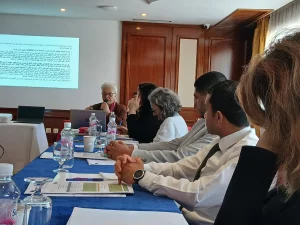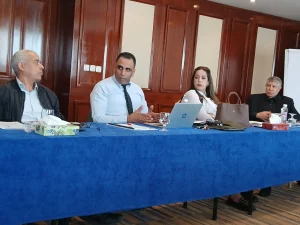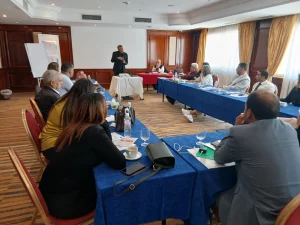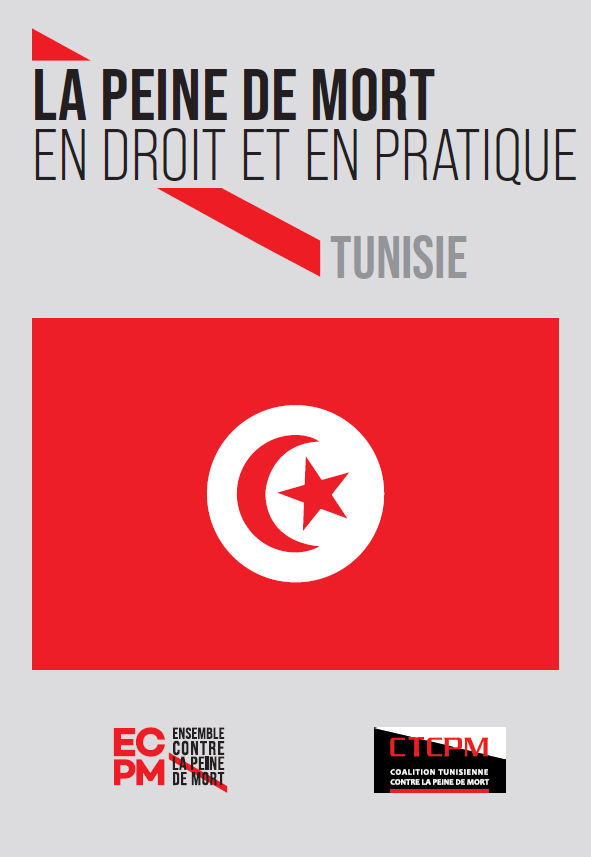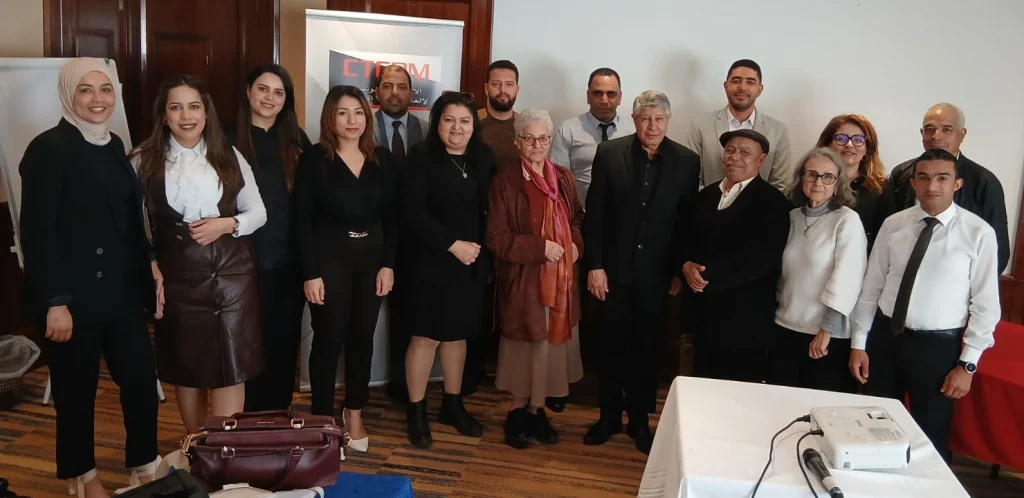
The aim of this training session was to highlight the vital role of lawyers in ensuring that every person facing the death penalty, without discrimination or exclusion, benefits from the guarantees of a fair trial and all the protections provided for by national legislation from the moment of detention. This role is particularly important for individuals without resources facing this cruel, inhuman and degrading punishment, providing them with the necessary legal assistance in all regions and at all stages of the judicial process, and can offer them some protection to avoid the death penalty or appeal the judgment.
The activities carried out
Over two days, high-level presentations by Tunisian and foreign academics, magistrates and lawyers, as well as NGO representatives, addressed issues related to the specific role of lawyers and the death penalty. Participants also took part in practical group exercises in interactive workshops.
The first day was opened by Mohamed Maali, Vice-President of the Tunisian Coalition Against the Death Penalty. In his opening speech, he highlighted the importance of the role of lawyers in ensuring adequate legal assistance in a state observing a moratorium such as Tunisia, but where death sentences continue to be handed down at a high rate. Three presentations followed by discussions were then led by Hafidha Chekir, Professor Emeritus of Law, Mohamed Zied Bouali, magistrate, and Chokri Latif, President of the CTCPM.
Following a rich and lively discussion, the morning session ended with the screening and discussion of four short films showcasing influential abolitionist figures.
During the second session of the day, moderated by Rakia Chehida, treasurer of the CTCPM, Mondher Cherni, a lawyer, gave a presentation on criminal provisions and procedures in death penalty cases and presented examples of cases he had handled. Rafic Zakharia, a lawyer from Lebanon and member of the Lebanese Association for Civil Rights (LACR), spoke to give an overview of the death penalty in Lebanese law and to present specific cases based on his experience as a lawyer and that of the Lebanese abolitionist movement in defending death row inmates. The day concluded with the screening of three short videos featuring influential abolitionist figures.
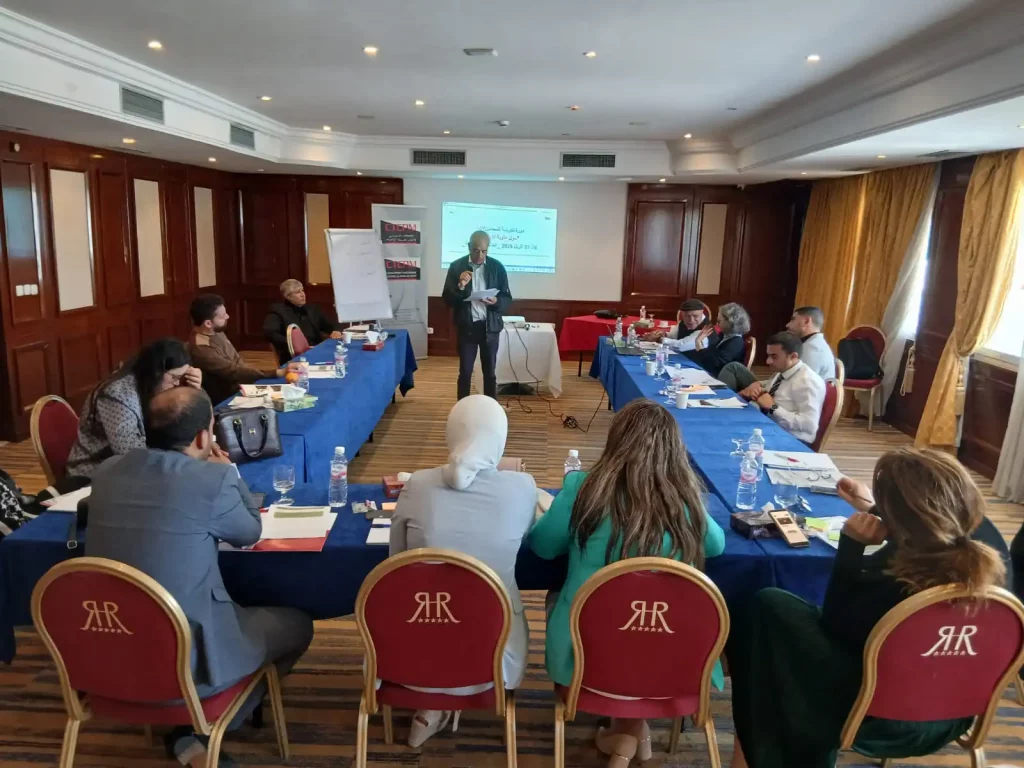
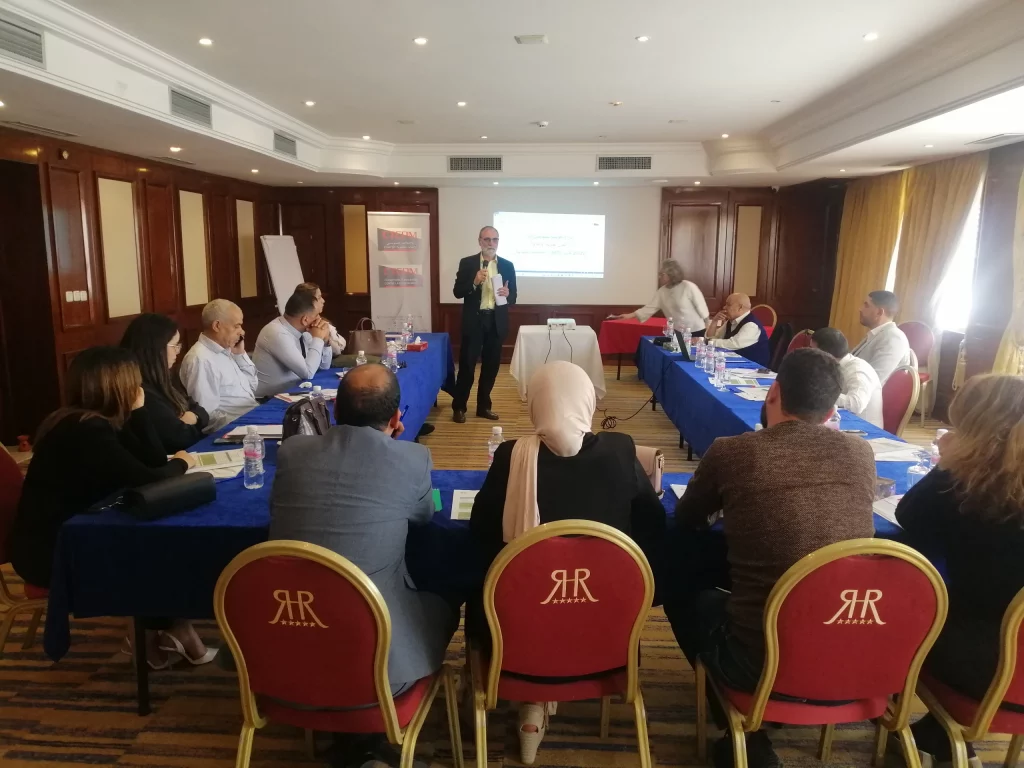
On the second day, participants took part in an initial workshop to discuss, in groups, the defence of a fictitious case involving a death row inmate with mental disabilities. The second workshop addressed the legal difficulties and cultural obstacles that hinder lawyers’ ability to assist individuals facing the death penalty. A final screening/debate of three short films featuring influential abolitionists took place, followed by an evaluation session, during which participants expressed their satisfaction with the legal skills and knowledge they had acquired during the session, as well as the richness and relevance of the presentations, workshops and practical exercises, and the quality of the organisation. Particularly positive feedback was given to the videos of influential abolitionist figures as an effective advocacy tool.

